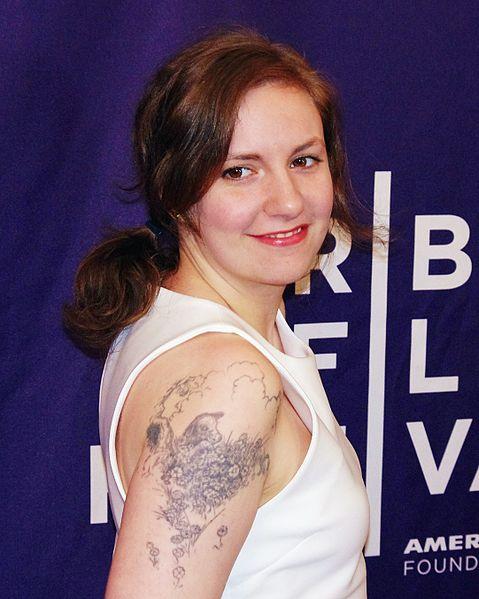Unless you've been in a coma for the past ten months, you've probably heard about "Girls," which premieres its second season tonight on HBO. You've also probably heard as much about the polarized opinions surrounding Lena Dunham—the show's 26-year-old writer, director, executive producer, and star—as you have about the show's portrayal of hookup culture and twenty-something life.
Twenty-nothing life would be more appropriate; the show is as bleak as it is witty. Dunham's depiction of New York City presents a stark contrast to the glittery, urban playground of "Sex and the City"—these girls are more likely to pregame with PBR than with 10 dollar cosmopolitans. The maelstrom of criticism and praise that has surrounded the show, impressively, makes the obsessive navel-gazing of its characters look like normal introspection by comparison.
Perhaps the intense media chatter is due to the fact that "Girls" is one of the first shows to hold a (decidedly unglamorous) mirror up to current young adult life—and perhaps the vitriol is a knee-jerk reaction to disliking this reflection.
It's also possible that the controversy comes as a result of the fact that Dunham herself leads a life that's a far cry from those of her characters, being much more successful and ambitious than they are. Additionally, Dunham has been the lucky recipient of numerous irrelevant and depressingly sexist personal attacks, most notably regarding her weight. An ambitious woman? Oh no! A full-figured woman in a nude scene? The horror!
There's also the part where all the girls of "Girls" are white, which hasn't sat well with many bloggers and critics. But the reality is that the majority of television shows are primarily populated by Caucasians. This is a problem, but it's not a problem that "Girls" started, and it's something that Dunham has promised to address in this upcoming season.
Speaking of representation, consider this: in the 100-top grossing movies of 2008 and 2009, women held only 33% of speaking roles.
There are more frightening facts, such as how few shows and films pass the requirements of the Bechdel test: (1) there are two female characters, (2) who talk to each other (3) about something other than a man. "Girls," though, does pass the Bechdel test, and its female-focused cast is a step away from the gender imbalance that plagues popular entertainment.
But social justice doesn't seem like the point. Regardless of the lifestyle it presents and whether or not you subscribe to it, "Girls" is well-crafted and smart, which is a rare find in modern television. If you feel otherwise, well, HBO GO is free for all Harvard students, so you can decide for yourself.
This season, we hope for more watching and less squawking.
Read more in Arts
Oscar Nominations: Who Should (And Shouldn't) Get The NodRecommended Articles
-
Law Review Election.The following men have been elected editors of the Law Review: From the third year, S. R. Wrightington; from the
-
TEN MEN CHOSEN TO OCCUPY POSITIONS ON RED BOOK BOARDThe competitions for the Business and Photographic Departments of the Freshman Red Book, started March 11, ended last night with
-
Freshman Mandolin Club.At the trial held yesterday afternoon the following men were taken on for further trial: Mandolins, R. J. Dunham, A.
-
PIERIAN-GLEE CLUB CONCERT.1-OVERTURE TO STRADELLA----------Flotow PIERIAN SODALITY.2-COMMENCEMENT HYMN..........J. K. Paine GLEE CLUB.3-PIANO SOLO - a II Penseroso..........Liszt b Canzonet MR. CARROL DUNHAM,
-
HARVARD CANOE CLUB.A meeting will be held in Holyoke 35, at 7 o'clock this evening, to perfect the organization of the club.
-
Yalies Adapt To New Game RulesYalies will be forced to overhaul their pre-Game party plans for the upcoming Harvard-Yale weekend—traditionally known as much for its














